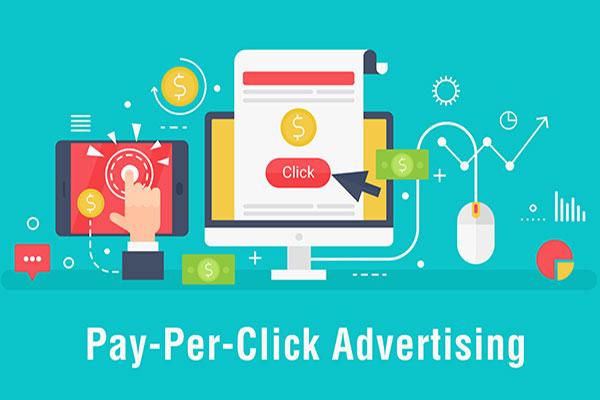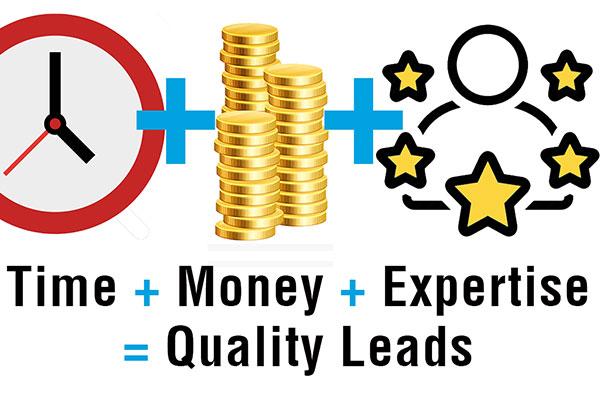
Google plays a very important role in the current and future success of your family law practice because it can either send potential clients your way or to one of your competitors. Today, about 90% of all Internet searches – currently two trillion searches per year and rising – are on Google. You owe it to your family law practice to do everything you can to understand how Google works, because what you know can help you and what you don’t know can hurt you.
You Are Your Google Search Results
If someone refers a prospective client to you – or if they find you via a professional directory, ad, or an article you wrote – they will almost certainly Google your name to learn more about you before they contact or meet with you.
Take a minute and Google your name and your firm’s name and see what comes up on the first page, then ask yourself the following questions about the results:
- Am I satisfied with these results?
- Is all the information up-to-date and accurate?
- Have I claimed all possible professional listings and profiles?
- Does the information about me support my branding message, the type of clients I work with, the type of cases I want, etc.?
- Are there bad reviews about me/my firm that I haven’t addressed?
Clio’s 2020 Legal Trends Report found that referrals and reviews were the most important factors in selecting an attorney so when you do the Google Search you are not doing it out of vanity, you are protecting your reputation online and ensuring you are putting your best foot forward. Prospective clients may choose to hire you – or not – based on what they find about you online.
Google Reviews
Numerous websites feature reviews and ratings, but none are as powerful as Google because of the sheer number of people who use it. According to BrightLocal’s 2020 Local Consumer Review Survey, 82% of consumers read online reviews for local businesses, with 93% of 35 to 54-year- olds saying they “always” read reviews. And, the average consumer reads ten reviews before feeling able to trust a business.
Anyone can post a review on Google. Whether those reviews are true, false, fair, or sour grapes, they can make or break your online reputation.
Anyone can post a review on Google. Whether those reviews are true, false, fair, or sour grapes, they can make or break your online reputation. Needless to say, good reviews will help you generate clients. The more good reviews you have, the less significant one or two bad reviews will be.
Ask satisfied clients for a review when they offer unsolicited compliments, or as part of your wrap-up process. Your tone should be friendly and informal, and start by giving the client a “good review”.
For example: “It has been a really pleasure working with you to achieve your custody goals! You remained calm in the face of setbacks, and you should be proud of modeling such powerful skills for your kids. I was wondering whether you had a minute to share a review about your experiences working with me and my law firm? Your opinion means everything to us, and we’d love to learn more.” Then, make it easy for them to leave that glowing review: “Please click here to leave your review.”
What to Do with Bad Reviews?
Here are two crucial steps to take:
- Neutralize these bad reviews by responding professionally to them. 97% of consumers who read reviews also read businesses’ responses to reviews.1
- Get more positive reviews to push bad ones down to the second or third page of search results.
Your Google My Business Page
Your Google My Business (GMB) page can drive traffic to your website and help to improve your online reputation. (If you haven’t claimed it yet, go and claim it now: it’s both free and important.) Sync your GMB page with your website so it will show up on the right side of the search results page when someone Googles your company name.
Provide detailed and complete data; the better the information, the better the results. Include important keywords like “Divorce” and phrases a potential client would use, like “Child custody in Illinois”.
Special Attributes, Images, and Videos
You can include special attributes – like black-owned businesses, women-owned businesses, etc. – on your GMB page.
Add photos of staff, the interior of your office, the exterior of your building, available parking, etc. Add videos that tell your firm’s story and promote your branding message. These visual elements will increase the number of people who will click-through to your website from your GMB page. Add badges (i.e., Super Lawyers, Best Lawyers, Family Lawyer Magazine Recognizes, etc.) and your firm logo.
Post fresh information on your GMB page to engage your audience; posts can be about your practice, the people at your firm, or the latest information regarding appointments during COVID.
Google Insights
Google Insights provides data on the number of views, a number of searches, and actions from both organic search results and Google Ads. Google Insights provides you with different ways to understand how customers interact with your GMB listing including:
- How customers find your listing
- Search queries they use
- Where customers find you on Google
- Customer actions
- Direction requests
- Phone calls
- Photos viewed
Google is constantly adding and updating features to make their products more useful to both consumers and business owners, and all of these tools are free.
Pay-Per-Click and Pay-Per-Lead Advertising

Pay-Per-Click (PPC) and Pay-Per-Lead (PPL) advertising require both a budget and expertise, so you will almost certainly require professional help for implementation and ongoing work.
Google ads show up in search results and on many, many websites. If you were to type the search term “Chicago divorce lawyer” into Google, the first thing that will show at the top are Google ads with more Google ads at the bottom of the page. The cost per click or lead is market driven, and it depends on how competitive that search term is in your geographic area.
Google Ads Have to Be Done Right
I have spoken with many family lawyers who say they have tried Google advertising and it did not work for them. In most cases, those law firms did not know what they were doing – or they hired service providers with no understanding of the family law market, and that lack of experience generated poor results.
At Divorce Marketing Group, we have taken over PPC campaigns that were costing a family lawyer $100+ per click and reduced the cost to $2 to $4 per click with better results. This has happened far more often than we thought it should have happened; we have seen incorrect campaign focus, shoddy set-up, poor landing pages, and a lack of communication/ reporting with clients.
PPC and PPL are both a science and an art. You must apply advanced PPC marketing and technical skills, monitor the results (including ROI), adjust the campaign if necessary, and improve on your best efforts. Running Google advertising campaign is definitely not something a lawyer or paralegal can take on in their spare time. This is where time + money + expertise = quality leads.

Speak to a marketing agency who specializes in working with family lawyers to get the best return on your advertising investment. Whatever agency you choose, make sure to ask for references from other family law clients outside your area (not your competition); then call and listen to what they have to say about their experience.
Dan Couvrette is a marketing expert for family lawyers and divorce professionals. He is the publisher of Family Lawyer Magazine and CEO of Divorce Marketing Group, a marketing agency 100% dedicated to promoting family lawyers and divorce professionals. www.DivorceMarketingGroup.com
Related Content
WATCH: Using Google & Texting to Generate Leads for Your Practice
Google offers tools that can help increase your online reputation & reviews as well as your website’s ranking. Combined with texting & online review management, those tools can generate a lot more leads & cases for your family law practice.
WATCH: How Google My Business Can Help Your Family Law Firm Grow
In this video, Dan Couvrette speaks with Joy Hawkins about how a Google My Business listing can help to fuel a family law firm’s growth.
How Local Service Ads Can Help Your Family Law Firm Grow
As part of an overall family law firm marketing strategy, Google’s Local Service Ads may now be the quickest, most effective way for your law firm to grow with quality phone leads.






